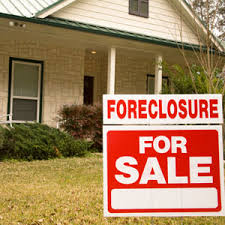How to Stop a Foreclosure in Massachusetts
I often get asked how to stop a foreclosure in Massachusetts. Homeowners facing foreclosure need to be aware of the different options for stopping foreclosure and how they apply to different scenarios. Stopping a foreclosure is priority number one in Massachusetts foreclosure defense; homeowners have a much, much better chance of saving their homes by preventing a foreclosure in the first place. This isn’t to say that homeowners who have been foreclosed lack options, but pre-foreclosure is always the better place to be.
So, how do you stop a foreclosure in Massachusetts?
Paying Off the Owed Debt
The obvious way of stopping a foreclosure is simply to pay off the owed debt on the mortgage loan. If this amount isn’t too large, this may be a feasible option for some homeowners. As I have written before, Massachusetts requires lenders to offer borrower a final opportunity to “cure” their mortgage loan debt before starting foreclosure. Homeowners should bear in mind, however, that even if they pay off their outstanding debt, the terms of their loan remain in place. If the homeowner was struggling with the loan because it was unaffordable, the homeowner should give serious throught to applying for the next option for stopping a foreclosure: a loan modification.
Loan Modification
A loan modification application, under new federal regulations, requires a loan servicer to stop foreclosure while the application is pending. Limits exist on this; repeated applications will not continuously stop a foreclosure. Because foreclosure defense is not about getting a free home, a loan modification should always be a homeowner’s first attempt at stopping foreclosure. If a homeowner is applying for a loan modification and the bank or loan servicer still begins foreclosure, the homeowner should consult an attorney right away to discuss options for stopping the foreclosure sale.
Bankruptcy
Bankruptcy provides a debtor with an automatic stay, which will automatically stop a foreclosure. Under bankruptcy law, the bank is prohibited from foreclosure, which can provide the homeowner with some time to work out their next course of action. Bankruptcy is a good option for a homeowner with an impeding deadline for a foreclosure sale and no other viable options. Long term, however, bankruptcy is not always the best choice for avoiding foreclosure in the long run (speak to a bankruptcy attorney to determine if this is a good option for you). Click here for a great overview of bankruptcy, provided by the Massachusetts Court System.
Civil Lawsuit
Homeowners also have the option of seeking injunctive relief in a lawsuit against their bank or loan servicer. An injunction is a court order that prevents (or requires) someone to do something. For foreclosure defense, a court will not grant an injunction against a foreclosure sale automatically; the homeowner needs to show a likelihood of success against the validity of the foreclosure. In other words, the homeowner needs to convince the court that the impeding foreclosure is being done wrongfully. Filing a lawsuit and requesting an injunction can be tricky, and a homeowner in need of such services should seek the help of a foreclosure defense attorney.

